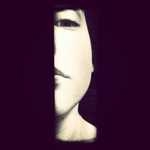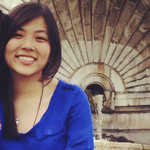In the words of John McBride, the translator and steward of this Basho account, on why he chose to follow and study Basho’s work:
I am asked why I enjoy walking. Initially the walks allowed me a sense of ownership of the classical literature I was studying. The walks provided a sense of achievement above that which could be provided by classroom-based study. On return to the classroom the walks provided context and made study more interesting and relevant. We were still being asked the impossible at university, to understand and extract benefit from a flawed education system. The system let the Japanese down, not to mention foreign students with non-native Japanese language ability. Often the result was rejection and cynicism which I was determined to avoid. A positive result was to access the best of what teaching was available and create your own educational experience through exposure to contemporary and ancient Japan.
The walks became my way of interacting with Japan, becoming vulnerable in a different cultural context, but on my own terms, and meeting as many Japanese in different situations as possible. In this way, the walks not only provided a physical sense of satisfaction and well being, but also helped alleviate the sense of dislocation I experienced as a foreign student in the Japanese education system. I began to long for the next university break when I could get out on the road again, and saw every Haiku I studied as a picture on the world I would eventually walk through.
Like Basho, I believe meditation experienced on a long walking tour can be transformational. Walking is conducive to healthy thought. There is no greater pleasure than being able to explore one’s mind as the body becomes stronger each day on a long distance walk. Basho’s transformation comes through his numerous walks leading up to the great walk on the Oku-no- Hosomichi. There were other transformational events along the way, like the death of his mother, the destruction of his hut by fire, and his move to the simple hermitage on the Sumida River. Through these events he cast away his earthly attachments and by the time he left on the Oku-no-Hosomichi he had nothing else to cast away but himself.
Excerpted from John McBride’s unpublished book on the world of Basho: The Narrow Road to the North
Other moments in Tokyo
-
Conversations, World Affairs, Culture
"I'm from Libya," he said. I don't know what to say. It's as if he'd told me he'd just come from his father's funeral.
in Tokyo, Japan -
The first specialty coffee shop in Ikebukuro and Junkudo (bookstore) resonate.
in Tokyo, Japan -
film, edit
Editing is interpreting.
in Tokyo, Japan -
The Riddle of Steel.
in Tokyo, Japan -
Commutes, Cities, Underground
The man stands motionless in a crush of white-shirted salarymen, as they swarm past him, toward the single escalator.
in Tokyo, Japan -
Reve, japan, Centre commercial piscine
Rêve de centre commercial-piscine
in Tokyo, Japan -
Urban Nature, birds
Sparrow Noise
in Tokyo, Japan -
City walks
Birthday walk home
in Tokyo, Japan -
Dead Letter, Addiction
"Dear Cigarettes"
in Tokyo, Japan





